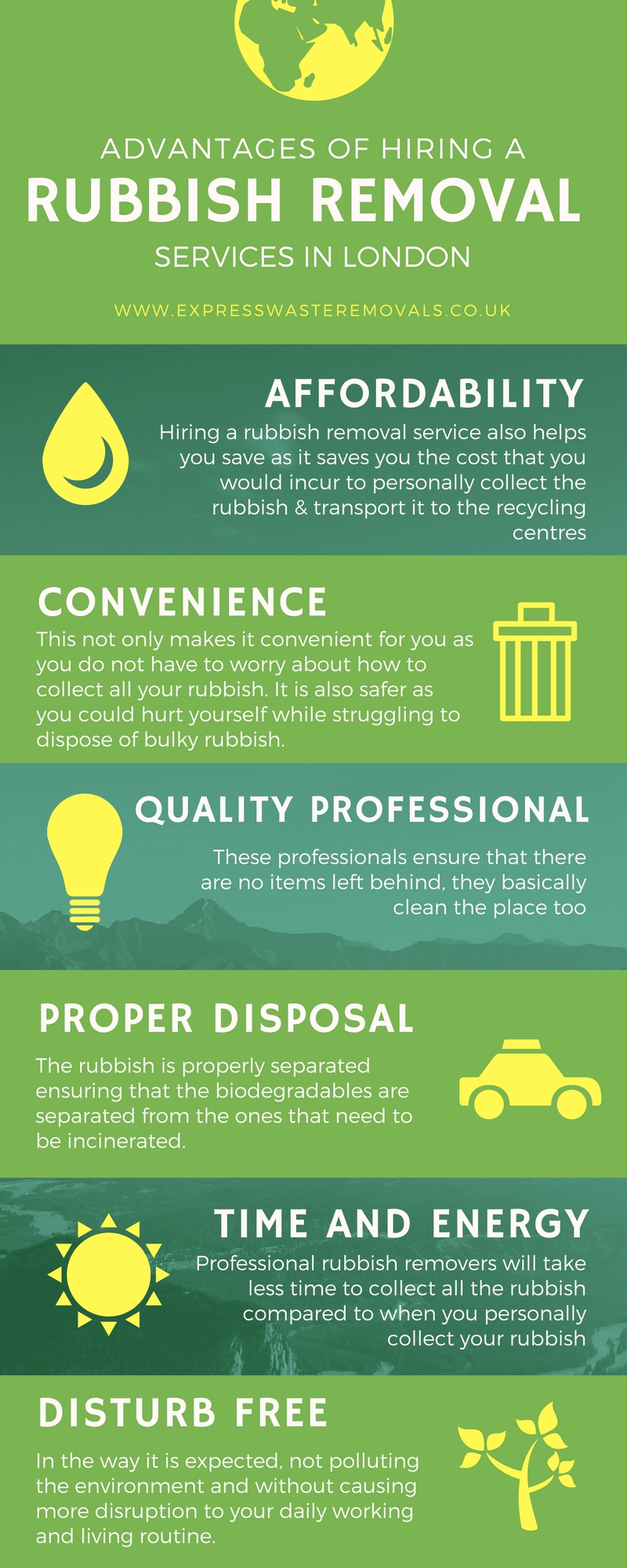The Ultimate Overview To Picking The Appropriate Dumpster Dimension For Your Project
The Ultimate Overview To Picking The Appropriate Dumpster Dimension For Your Project
Blog Article
Article Developed By-Galloway Fisher
When starting a project that needs a dumpster, the dimension you choose can significantly influence its efficiency and cost-effectiveness. Visualize having the ideal container that fits all your waste without being excessively large or as well small. It all starts with understanding the nuances of your task and picking a dumpster size that straightens with your specific requirements. So, before everman trash pickup decide, consider the elements at play to guarantee a seamless waste monitoring procedure throughout.
Aspects to Consider
When picking the ideal dumpster dimension, there are a number of key factors to take into consideration.
First, think of the type of waste you'll be getting rid of. Various products may need differing quantities of space, so understanding what you'll be placing in the dumpster is important.
Next, examine the amount of waste you anticipate to generate. If you underestimate the volume, you might require to make multiple trips to get rid of whatever, which can be troublesome and pricey. On the other hand, renting out a dumpster that's as well big can result in unneeded expenditures.
In addition, consider the space where the dumpster will certainly be put. Make certain there's enough room for the dumpster to be supplied and gotten without any blockages.
Last but not least, think about any kind of weight restrictions that may apply. Surpassing the weight limitation can cause extra costs or perhaps the refusal of service.
Dumpster Dimension Options
For picking the appropriate dumpster dimension, it's vital to have a mutual understanding of the offered choices. Dumpster sizes usually range from 10 to 40 cubic backyards, with variants in between.
A 10-yard dumpster appropriates for little tasks like a garage cleanout or a small restoration. If you're tackling a medium-sized job such as a cooking area remodel or a cellar cleanout, a 20-yard dumpster might be the appropriate choice.
For bigger projects like a whole-house remodelling or industrial construction, a 30 or 40-yard dumpster could be better to suit the volume of waste created.
When deciding on a dumpster size, think about the amount and sort of particles you anticipate to deal with. It's better to select a slightly larger dimension if you're unsure to prevent overfilling. Keep in mind, it's even more cost-efficient to lease a dumpster that fits your needs instead of having to get an added one.
Matching Dimension to Project
Optimally matching the dumpster size to your task is essential for reliable waste monitoring. To determine the best size, take into consideration the scope and nature of your task.
For small house cleanouts or remodellings, a 10-yard dumpster might be sufficient. These are generally 12 feet long and can hold around 4 pickup lots of waste.
For bigger tasks like remodeling multiple rooms or removing a large estate, a 20-yard dumpster might be more suitable. These are around 22 feet long and can hold around 8 pickup loads.
If you're dealing with a major building and construction task or commercial remodelling, a 30-yard dumpster could be the very best fit. These dumpsters are about 22 feet long and can accommodate regarding 12 pickup truck loads of debris.
Matching the dumpster dimension to your job ensures you have enough area for all waste products without paying too much for unused capacity.
roll off companies
To conclude, selecting the best dumpster size for your project is essential for effective garbage disposal. By thinking about factors like the type and quantity of waste, room availability, weight restrictions, and budget plan restraints, you can guarantee you have the ideal dimension dumpster for your demands. Make sure to match the dimension of the dumpster to the scope and nature of your job to avoid overspending on unnecessary expenditures.
